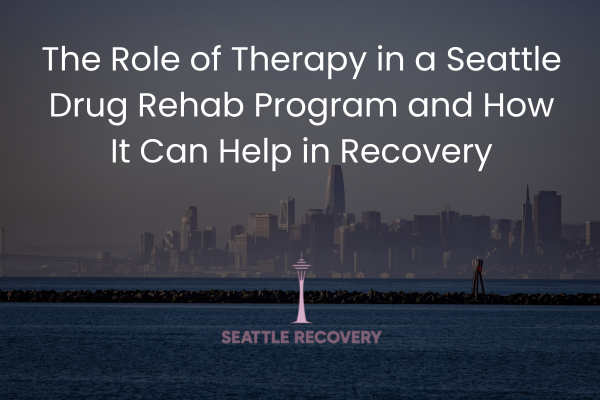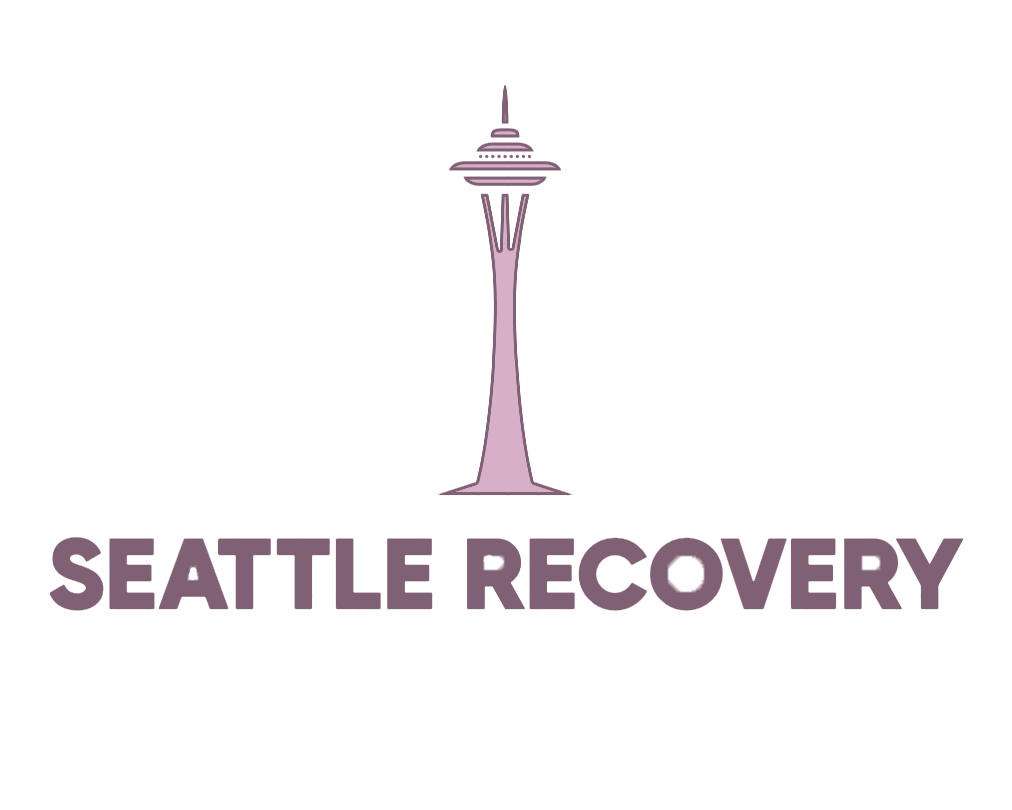When someone takes the first step toward recovery from substance use, it’s often a mixture of courage, fear, and hope. The journey ahead can seem overwhelming, filled with both uncertainty and potential. But one thing that remains central to that journey—no matter the individual’s background, experience, or specific substance—is therapy. Therapy is the backbone of any effective Seattle Drug Rehab Program, and for good reason. It’s where the real work of healing begins, where underlying issues are brought to the surface, and where people learn the tools to rebuild their lives with strength, clarity, and purpose.
At Seattle Recovery, we’ve seen firsthand how transformative therapy can be. While detoxification may be the first step, therapy is what sustains recovery. It helps people understand the why behind their addiction, change harmful patterns, repair relationships, and cultivate lasting resilience. In this post, we’re going to explore the essential role therapy plays in a Seattle Drug Rehab Program and how it helps individuals move from surviving to thriving.
Understanding Addiction as More Than a Physical Condition
One of the biggest misconceptions about addiction is that it’s purely a physical issue. While the physical symptoms of withdrawal and dependence are very real and must be addressed, addiction is deeply rooted in emotional, psychological, and often social challenges. That’s why medical treatment alone isn’t enough. Without understanding the emotional drivers of addiction—trauma, stress, mental health disorders, grief, or unresolved pain—lasting recovery remains out of reach.
That’s where therapy comes in. In a comprehensive Seattle Drug Rehab Program, therapy helps individuals identify and process these deeper causes. Whether it’s through individual therapy, group sessions, or specialized modalities, therapy addresses the mind and spirit, not just the body.
- How Your Mental Health Affects Addiction:
Mental health and addiction are intricately connected, often creating a complex web that ensnares individuals in a vicious cycle. Mental health disorders, such as depression, anxiety, bipolar disorder, and post-traumatic stress disorder (PTSD), can significantly increase the risk of developing an addiction. The reason behind this is multifaceted. For many, substance use begins as an attempt to self-medicate—to alleviate the pain and discomfort of mental health symptoms temporarily. However, this self-medication can quickly spiral into dependency as tolerance builds and the substance ceases to provide relief but becomes a necessity for normal functioning.
On the flip side, addiction itself can exacerbate or trigger mental health disorders due to its profound impact on the brain’s chemistry and function. This dual struggle creates a feedback loop where each condition feeds into and worsens the other, making it challenging to address one without tackling the other simultaneously. Understanding this interconnectedness is crucial for effective treatment because it emphasizes the need for holistic approaches that cater to both mental health and substance abuse issues together, rather than treating them in isolation.
Co-occurring disorders, also known as dual diagnosis, refer to the condition in which an individual simultaneously experiences mental health issues and substance abuse problems. This complex interplay between two different yet intertwined conditions can significantly complicate treatment and recovery processes. At Seattle Recovery, we understand the intricate nature of co-occurring disorders and are dedicated to providing comprehensive care tailored to address both aspects of your well-being. Our integrated treatment approach combines therapy, medication management, and personalized support plans designed to target your unique needs, ensuring that both your mental health and substance use disorders are treated concurrently.
By focusing on holistic healing, we aim to empower you with the tools and resilience needed to overcome these challenges and reclaim control over your life. Our team of compassionate professionals is committed to walking alongside you every step of the way towards recovery, fostering an environment where healing and hope can flourish.
Individual Therapy: A Space for Personal Healing
In individual therapy, clients meet one-on-one with a licensed therapist who works closely with them to uncover the unique roots of their addiction. These sessions are a safe and confidential space where individuals can talk openly about their struggles, their past, and their hopes for the future.
Therapists use a variety of evidence-based approaches, such as Cognitive Behavioral Therapy (CBT), which helps clients identify and shift harmful thought patterns; Dialectical Behavior Therapy (DBT), which teaches emotional regulation and distress tolerance; and Motivational Interviewing (MI), which builds internal motivation for change. These methods are all part of a well-rounded Seattle Drug Rehab Program and are tailored to fit the specific needs of each person.
The goal of individual therapy isn’t just to stop substance use—it’s to understand the behaviors and emotions behind it. It’s about learning new ways to cope, manage stress, handle triggers, and develop a healthier relationship with oneself.
Group Therapy: The Power of Shared Experience
Recovery can feel isolating, especially in the early stages. That’s why group therapy is such a powerful part of any Seattle Drug Rehab Program. In group sessions, clients connect with others who are walking the same path. These shared experiences create a sense of community, reduce shame, and provide mutual support that is vital to healing.
Group therapy is led by a trained therapist and usually focuses on specific themes like relapse prevention, relationship dynamics, anger management, or grief. Participants not only receive guidance and insight, but they also offer it to others, which can be incredibly empowering. For many, hearing someone else articulate a familiar struggle helps them feel seen and understood in a way they never have before.
Therapy in a group setting also helps individuals develop social skills, improve communication, and practice healthy boundaries—all essential parts of long-term recovery.
Family Therapy: Healing Together
Addiction doesn’t just affect the person using substances—it impacts the entire family. Relationships can become strained, trust is often broken, and old patterns of conflict may become entrenched. Family therapy, therefore, plays a crucial role in a well-rounded Seattle Drug Rehab Program.
At Seattle Recovery, we recognize the importance of including loved ones in the healing process. Family therapy helps all members understand the nature of addiction, the impact of their roles in the family system, and how they can support recovery in a healthy, constructive way. These sessions can be challenging, as they often bring up past pain or misunderstandings, but they are also where deep healing and reconciliation can take place.
When families are involved in treatment, outcomes are often better. Clients feel more supported, communication improves, and families begin to function as true support systems rather than sources of tension or conflict.
Addressing Co-Occurring Disorders Through Integrated Therapy
Many individuals struggling with addiction also live with co-occurring mental health disorders such as depression, anxiety, PTSD, or bipolar disorder. This is known as a dual diagnosis, and it requires integrated treatment. A quality Seattle Drug Rehab Program will include therapists who are trained to treat both addiction and mental health issues simultaneously.
Treating one without the other often leads to relapse. For example, if someone uses substances to self-medicate depression, but only the substance use is treated, the underlying depression can cause a return to old behaviors. Therapy helps uncover and manage these interconnected challenges so that recovery is truly sustainable.
At Seattle Recovery, we offer trauma-informed care, psychiatric support, and personalized treatment plans that ensure both substance use and mental health are addressed holistically. This integrated approach empowers clients to build a stable foundation for lasting recovery.
The Benefits of Trauma-Informed Therapy
Trauma is one of the most common underlying factors in addiction. Whether it’s childhood abuse, violence, neglect, or other painful experiences, trauma can leave emotional wounds that make substance use feel like the only escape. Therapy that is trauma-informed recognizes this and works gently and compassionately to help individuals heal without retraumatization.
Therapists trained in trauma-informed approaches create a space of safety, respect, and empowerment. They help clients reconnect with their bodies, understand their responses, and reclaim a sense of control. At Seattle Recovery, this approach is embedded into every aspect of our Seattle Drug Rehab Program. Healing trauma is not easy—but with the right support, it is possible.
Mindfulness, Self-Compassion, and Holistic Therapy
In addition to traditional talk therapy, many drug rehab programs now include holistic therapies that support emotional wellness and personal growth. These may include mindfulness practices, yoga, art therapy, music therapy, or breathwork. While these may seem like extras, they are often essential tools that help individuals reconnect with themselves in nonverbal, powerful ways.
Mindfulness in particular has become a cornerstone of many recovery programs. It helps individuals slow down, observe their thoughts without judgment, and respond to cravings or stress with calm and clarity rather than impulsivity. Self-compassion is another critical skill developed through therapy—learning to forgive oneself, let go of shame, and believe in the possibility of change.
At Seattle Recovery, we incorporate these holistic elements into our Seattle Drug Rehab Program because we believe recovery is about more than abstinence. It’s about creating a life of meaning, peace, and connection.

Therapy and Long-Term Recovery
One of the biggest challenges in addiction treatment is relapse prevention. That’s why therapy continues to play a role even after a client completes an inpatient or outpatient program. Ongoing therapy provides continued accountability, helps individuals navigate life transitions, and offers support when new challenges arise.
Whether someone continues with individual sessions, attends alumni support groups, or participates in community-based counseling, staying connected to therapy significantly increases the chances of maintaining long-term sobriety. Recovery is a lifelong process, and therapy remains a valuable companion along the way.
How Seattle Recovery Can Help
At Seattle Recovery, we are passionate about helping individuals and families reclaim their lives from the grip of addiction. Our expert team of therapists, counselors, and addiction specialists understands the power of therapy to transform lives. We believe that every person deserves a chance to heal—and that therapy is one of the most powerful tools for that healing.
Our Seattle Drug Rehab Program is built on compassion, evidence-based practices, and a deep respect for each individual’s story. Whether someone is stepping into recovery for the first time or returning after a relapse, we provide a safe and supportive space where healing can take root.
We also work closely with families, employers, and healthcare providers to ensure that each person receives truly personalized care. Recovery is not one-size-fits-all, and therapy is most effective when it meets people where they are.
Therapy Is the Heart of Healing
Therapy isn’t just one part of recovery—it is the heart of healing. It’s where people find their voice, face their pain, and begin to believe in a new future. In a high-quality Seattle Drug Rehab Program, therapy provides the foundation for emotional resilience, personal transformation, and lasting sobriety.
Whether through individual counseling, group support, family involvement, or trauma-focused care, therapy creates the space for deep, sustainable change. And for many, it’s the first time they’ve felt truly seen, heard, and valued.
At Seattle Recovery, we are here for you or your loved one who needs their life back. If you’re considering treatment or want to learn more about how therapy fits into our Seattle Drug Rehab Program, we invite you to reach out. Our team is ready to support you every step of the way.
Because healing is possible. And therapy can help make it happen. Give us a call today at (206) 231-0252 or visit our website at www.seattlerecovery.org to learn more about how we can help you.







